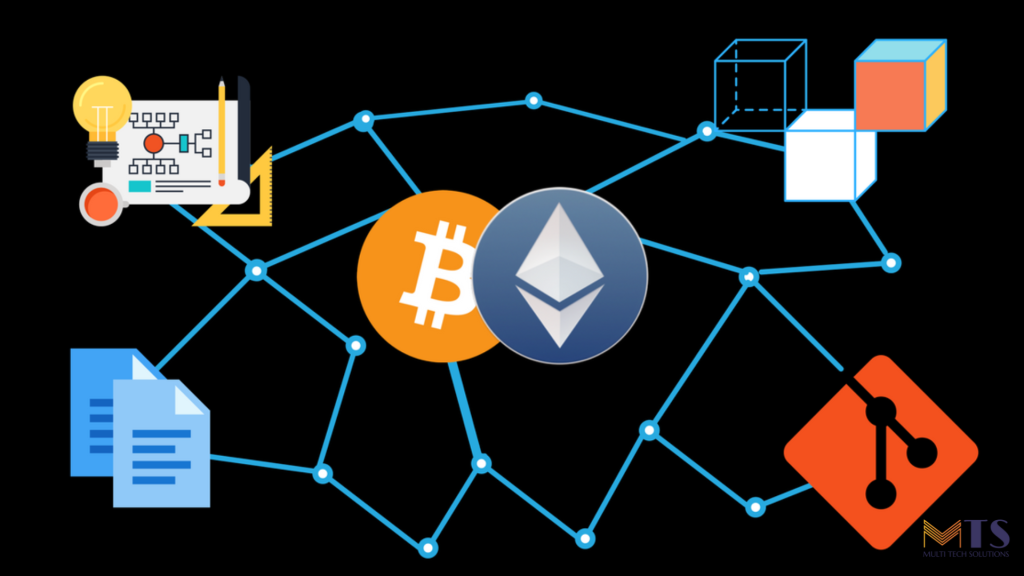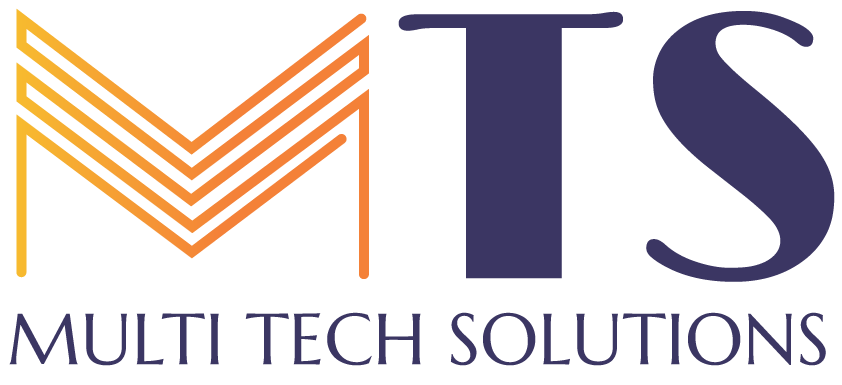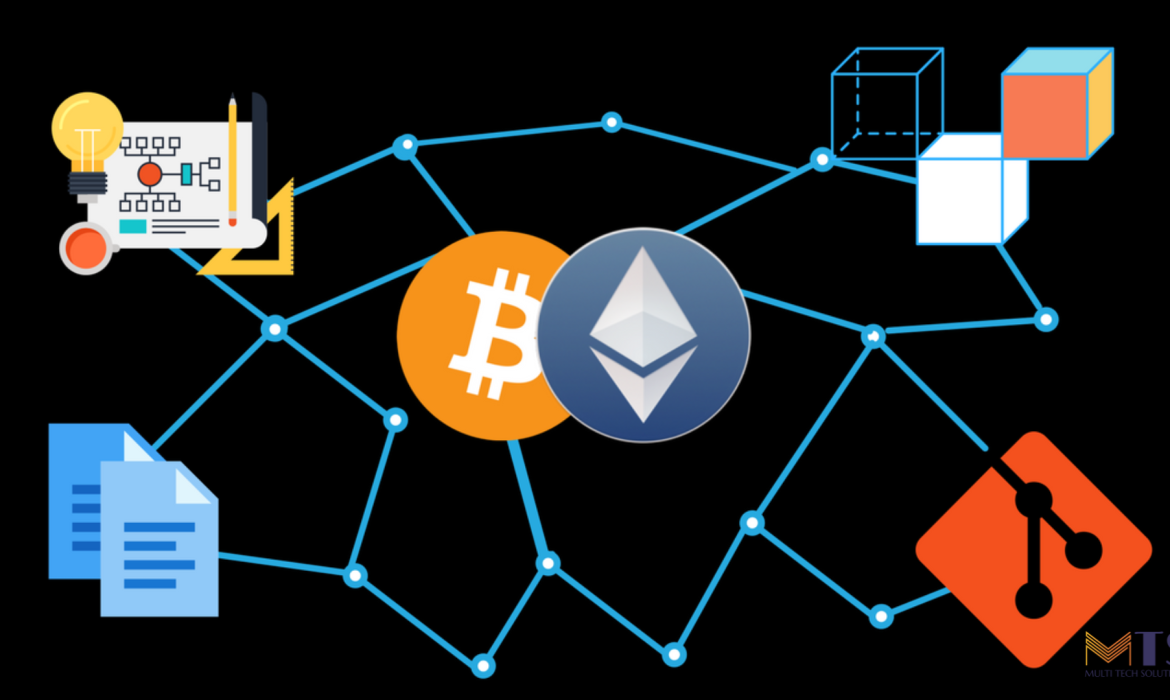
In today’s rapidly evolving business landscape, supply chain management plays a pivotal role in determining an organization’s success. The seamless flow of goods, information, and resources is essential for meeting customer demands and maintaining a competitive edge. However, this intricate web of processes is not without its challenges, ranging from information asymmetry to a lack of traceability. Enter blockchain technology – a groundbreaking innovation that holds the promise of transforming the way we manage supply chains. In this article, we will delve into the potential of blockchain in supply chain management, exploring how it enhances transparency, provides real-time visibility, and offers a myriad of benefits.
Blockchain Technology: A Game-Changer in Supply Chain Management
Blockchain technology, originally developed as the underlying framework for cryptocurrencies, has far-reaching implications beyond the financial sector. Its decentralized and immutable nature presents a paradigm shift in how supply chains are managed, addressing critical pain points and enabling smoother operations.
Enhancing Transparency and Traceability
Blockchain’s inherent transparency fosters a level of trust and accountability previously unattainable in supply chains. Each transaction and movement of goods is recorded in a secure, tamper-proof ledger, visible to all authorized participants. This transparency not only deters fraudulent activities but also ensures that all stakeholders have access to accurate and up-to-date information.
Real-Time Visibility: A Game of Advantage
One of the most significant advantages that blockchain brings to supply chain management is real-time visibility. Traditional supply chains often suffer from delays in information sharing, leading to inefficiencies and disruptions. With blockchain, participants gain instant access to the entire chain of events, from raw material sourcing to end-user delivery. This real-time insight enables proactive decision-making, reducing lead times and minimizing disruptions.
Benefits of Blockchain in Supply Chain Management
The integration of blockchain technology into supply chain management offers a plethora of benefits that can revolutionize the industry. Let’s explore some of these advantages:
1. Enhanced Security and Immutability
Blockchain’s cryptographic and consensus mechanisms ensure that once data is recorded, it cannot be altered or deleted without the consensus of the network. This feature significantly reduces the risk of data breaches, fraud, and unauthorized access.
2. Streamlined Documentation
Blockchain eliminates the need for cumbersome paper trails and manual record-keeping. Smart contracts, self-executing code that automates contract terms, facilitate seamless and error-free documentation, reducing administrative burdens.
3. Efficient Tracking and Tracing
The ability to trace the journey of goods across the supply chain enhances accountability and quality control. In industries such as food and pharmaceuticals, blockchain enables rapid identification and recall of products in case of safety concerns.
4. Reduced Costs and Disruptions
By minimizing intermediaries and improving operational efficiency, blockchain reduces transaction costs and the likelihood of delays caused by paperwork, disputes, or lack of visibility.
5. Improved Supplier Management
Blockchain enhances supplier relationships by providing accurate and real-time data on supplier performance, compliance, and sustainability practices. This fosters collaboration and incentivizes suppliers to maintain high standards.
6. Sustainability and Ethical Sourcing
Blockchain enables transparent tracking of raw materials’ origins and production processes. This empowers consumers to make informed choices and encourages organizations to adopt sustainable and ethical practices.
Embracing the Future: The Advantages of Blockchain in Supply Chain Management
The advantages of integrating blockchain technology into supply chain management are multifaceted and far-reaching:
1. Seamless Collaboration
Blockchain encourages collaboration among supply chain participants by providing a shared, tamper-proof platform for data exchange. This eliminates information silos and enhances communication between stakeholders.
2. Reduced Fraud and Counterfeiting
The transparent and traceable nature of blockchain reduces the risk of counterfeit goods entering the supply chain. This is particularly significant in industries where product authenticity is critical.
3. Faster Conflict Resolution
Disputes and conflicts often arise due to discrepancies in information between different parties. Blockchain’s single source of truth minimizes such conflicts and expedites their resolution.
4. Enhanced Customer Trust
The transparency and traceability offered by blockchain enhance customer trust by allowing them to verify the authenticity and journey of products. This is particularly valuable for brands that prioritize quality and ethical sourcing.
5. Regulatory Compliance
Blockchain facilitates adherence to regulatory requirements by providing auditable and tamper-proof records. This is especially important in industries with stringent compliance standards.
In conclusion, Blockchain technology has the potential to revolutionize supply chain management by introducing transparency, real-time visibility, and a host of benefits. As organizations seek ways to enhance efficiency, reduce costs, and build trust, embracing blockchain can pave the way for a more resilient and responsive supply chain ecosystem. The advantages it brings, from enhanced security to seamless collaboration, position blockchain as a game-changer in the way we manage and optimize supply chains.
In a world where innovation is the key to staying ahead, harnessing the potential of blockchain in supply chain management is a strategic move that can yield remarkable results. As technology continues to evolve, organizations that leverage blockchain will not only navigate supply chain complexities with ease but also shape the future of their industries.


